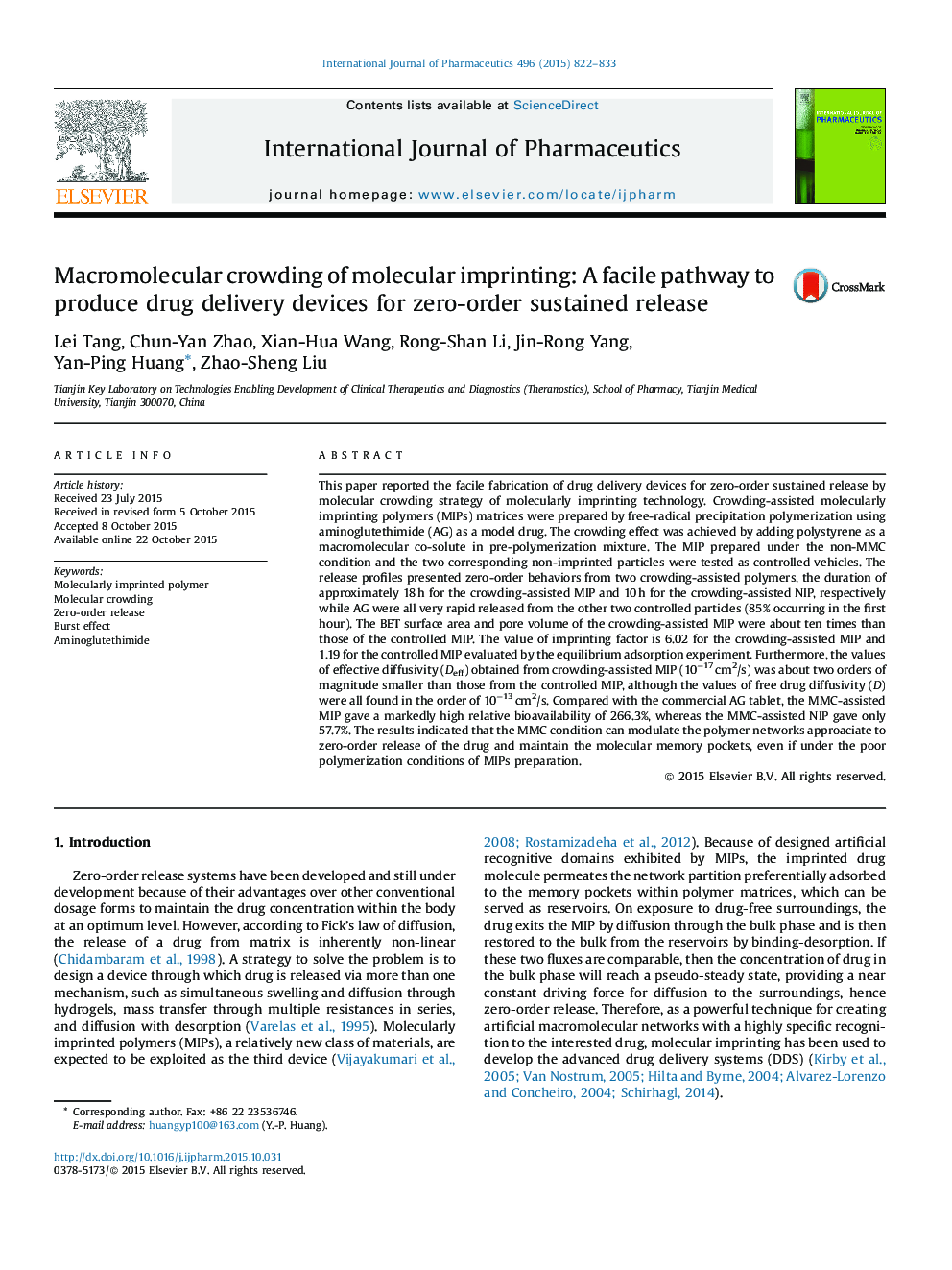| کد مقاله | کد نشریه | سال انتشار | مقاله انگلیسی | نسخه تمام متن |
|---|---|---|---|---|
| 5818272 | 1557325 | 2015 | 12 صفحه PDF | دانلود رایگان |
This paper reported the facile fabrication of drug delivery devices for zero-order sustained release by molecular crowding strategy of molecularly imprinting technology. Crowding-assisted molecularly imprinting polymers (MIPs) matrices were prepared by free-radical precipitation polymerization using aminoglutethimide (AG) as a model drug. The crowding effect was achieved by adding polystyrene as a macromolecular co-solute in pre-polymerization mixture. The MIP prepared under the non-MMC condition and the two corresponding non-imprinted particles were tested as controlled vehicles. The release profiles presented zero-order behaviors from two crowding-assisted polymers, the duration of approximately 18Â h for the crowding-assisted MIP and 10Â h for the crowding-assisted NIP, respectively while AG were all very rapid released from the other two controlled particles (85% occurring in the first hour). The BET surface area and pore volume of the crowding-assisted MIP were about ten times than those of the controlled MIP. The value of imprinting factor is 6.02 for the crowding-assisted MIP and 1.19 for the controlled MIP evaluated by the equilibrium adsorption experiment. Furthermore, the values of effective diffusivity (Deff) obtained from crowding-assisted MIP (10â17Â cm2/s) was about two orders of magnitude smaller than those from the controlled MIP, although the values of free drug diffusivity (D) were all found in the order of 10â13Â cm2/s. Compared with the commercial AG tablet, the MMC-assisted MIP gave a markedly high relative bioavailability of 266.3%, whereas the MMC-assisted NIP gave only 57.7%. The results indicated that the MMC condition can modulate the polymer networks approaciate to zero-order release of the drug and maintain the molecular memory pockets, even if under the poor polymerization conditions of MIPs preparation.
256
Journal: International Journal of Pharmaceutics - Volume 496, Issue 2, 30 December 2015, Pages 822-833
